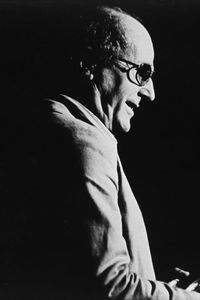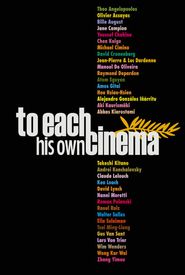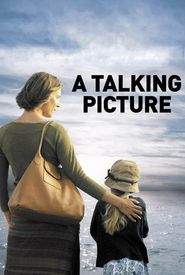Manoel de Oliveira, a celebrated and illustrious Portuguese filmmaker, emerged into this world on December 11, 1908, in the vibrant city of Porto, Portugal, to his parents, Francisco José de Oliveira and Cândida Ferreira Pinto. His family, esteemed industrialists of considerable wealth, afforded him a life of comfort and privilege, shaping the early years of his existence.
Oliveira's formative years were characterized by an unwavering passion for the art of acting, which ultimately led him to pursue his educational endeavors in the culturally rich and picturesque region of Galicia, Spain. Nevertheless, his trajectory took a dramatic turn at the tender age of 20, when he decided to enroll in the esteemed acting school founded by the renowned Italian film-maker, Rino Lupo. However, his artistic inclinations underwent a significant transformation after being deeply moved by the visually stunning and thought-provoking documentary Berlin: Symphony of a City, masterfully crafted by the visionary Walther Ruttmann.
Manuel de Oliveira's initial foray into filmmaking was inspired by his cinematic experience, ultimately leading him to direct his inaugural documentary, "Douro, Faina Fluvial", in the year 1931. Additionally, he made a notable appearance in the second Portuguese sound film, "A Canção de Lisboa", which was released in 1933. However, it was not until the year 1942 that Oliveira released his first feature-length film, "Aniki-Bóbó", a poignant portrayal of Oporto's street children, which unfortunately received a lukewarm response from audiences.
Over the years, the artistic endeavors of Oliveira proved to be met with an initial lack of commercial success, a circumstance that would ultimately lead to a significant shift in his career trajectory.
This unforeseen setback, coupled with the financial demands of maintaining a family business, compelled Oliveira to temporarily set aside his filmmaking aspirations and instead devote his time and energy to managing his family's vineyard, a venture that would serve as a stabilizing force in his life.
However, it was not until 1956 that Oliveira would re-enter the world of cinema with the release of The Artist and the City, a film that marked a pivotal moment in the development of his unique cinematic vision and a testament to his unwavering dedication to his craft.
Manoel de Oliveira, a Portuguese film director, screenwriter, and producer, reached a pivotal moment in his career in 1963 with the release of O Acto de Primavera, a documentary that showcased his evolving artistic vision.
This groundbreaking work was soon followed by A caça, a feature film that starkly diverged from the documentary style Oliveira had previously employed, exhibiting a darker, more somber tone.
Despite receiving widespread critical acclaim for both films, Oliveira's directorial output came to a temporary halt, and he didn't return to the helm until the 1970s, a period marked by renewed creative momentum.
Manoel de Oliveira's journey as a filmmaker was characterized by periods of experimentation, innovation, and artistic growth, as evident in his diverse body of work, which spanned multiple decades and genres.
As the 82nd milestone birthday approached in 1990, Oliveira's creative momentum showed no signs of slowing down. In fact, he continued to produce at least one film annually, fueled by an unbridled passion for filmmaking that transcended the need for critical acclaim. Despite his remarkable output, Oliveira has always preferred to keep a low profile, shying away from the glare of the spotlight.
Throughout his illustrious career, Oliveira has been showered with numerous accolades, including two Career Golden Lions in 1985 and 2004, which serve as a testament to his enduring influence on the world of cinema. Additionally, he has been recognized for his lifetime achievements with a golden palm from the prestigious Cannes, Venice, and Montreal film festivals in 2008, a distinction that further solidifies his status as a master filmmaker.




































